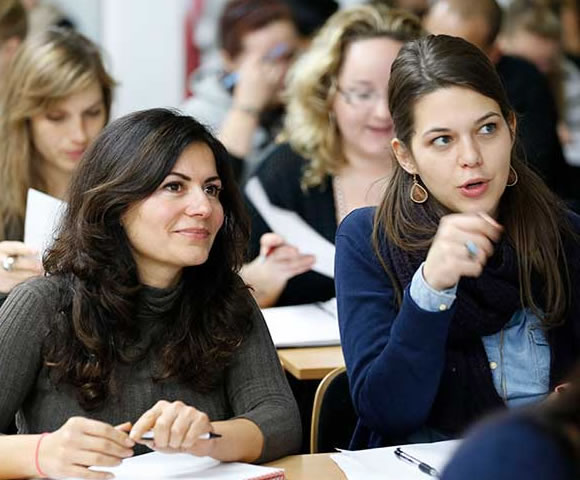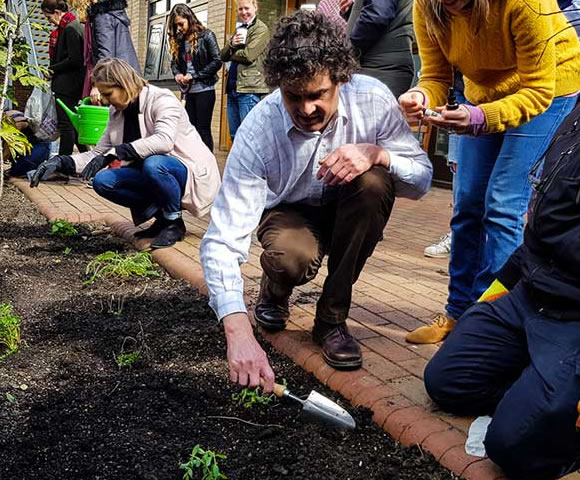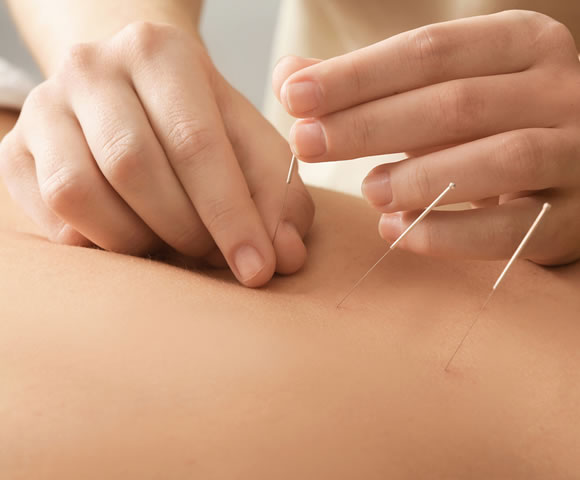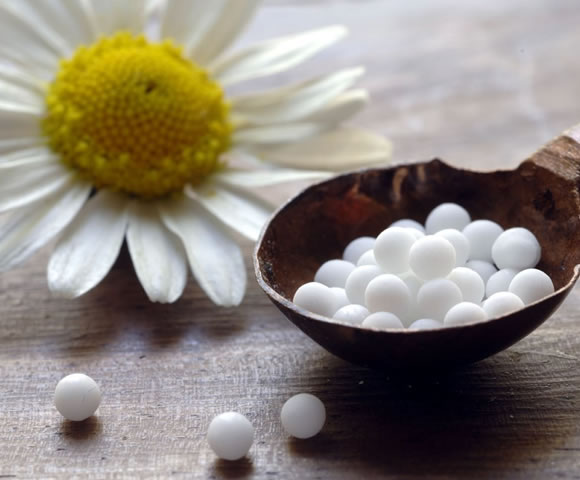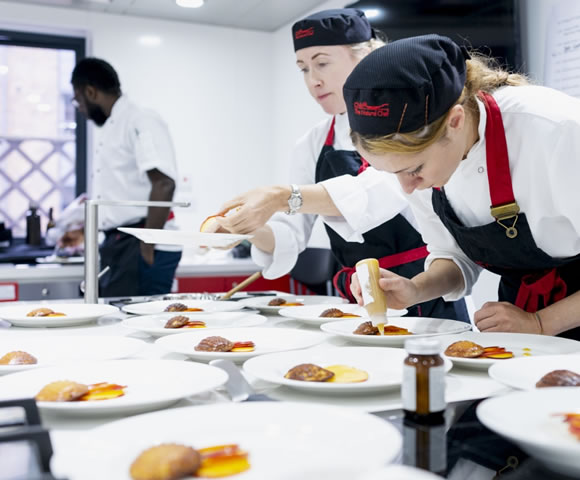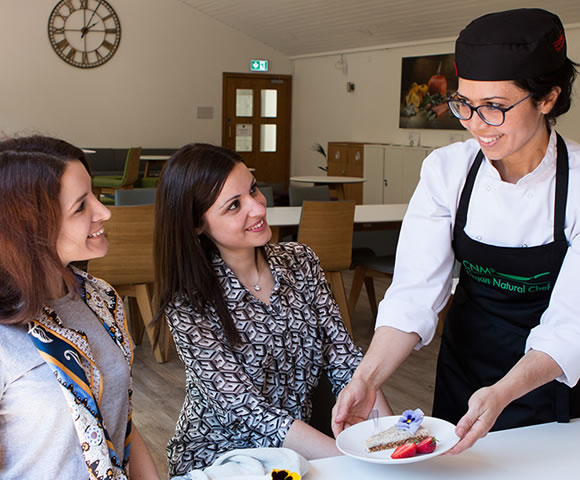Become an Accredited Acupuncturist
Acupuncture courses
Acupuncture Training Course
CNM’s Acupuncture Diploma Course provides high-quality acupuncture training that equips graduates to build extremely successful practices.
The course is carefully structured so each study unit builds on the previous one. This allows students to develop their confidence and acupuncture skills and reach their full potential as professional acupuncturists. Students are strongly encouraged to develop their own unique style of consultation and application.
80% of CNM graduates are practising (part time or full time)
- Part 1: Biomedicine, Naturopathy Study and Acupuncture
- Part 2: Naturopathic Principles and Acupuncture
- Part 3: Acupuncture and Dissertation
Acupuncture Course Overview
Length of Study: 3 years (full time) / 4-5 years (part time)
Clinical Hours: 400 hours
Study Locations: Dublin
CNM Diploma: Dip. Acupuncture & Dip. Naturopathy
Train To Become a Qualified Acupuncturist
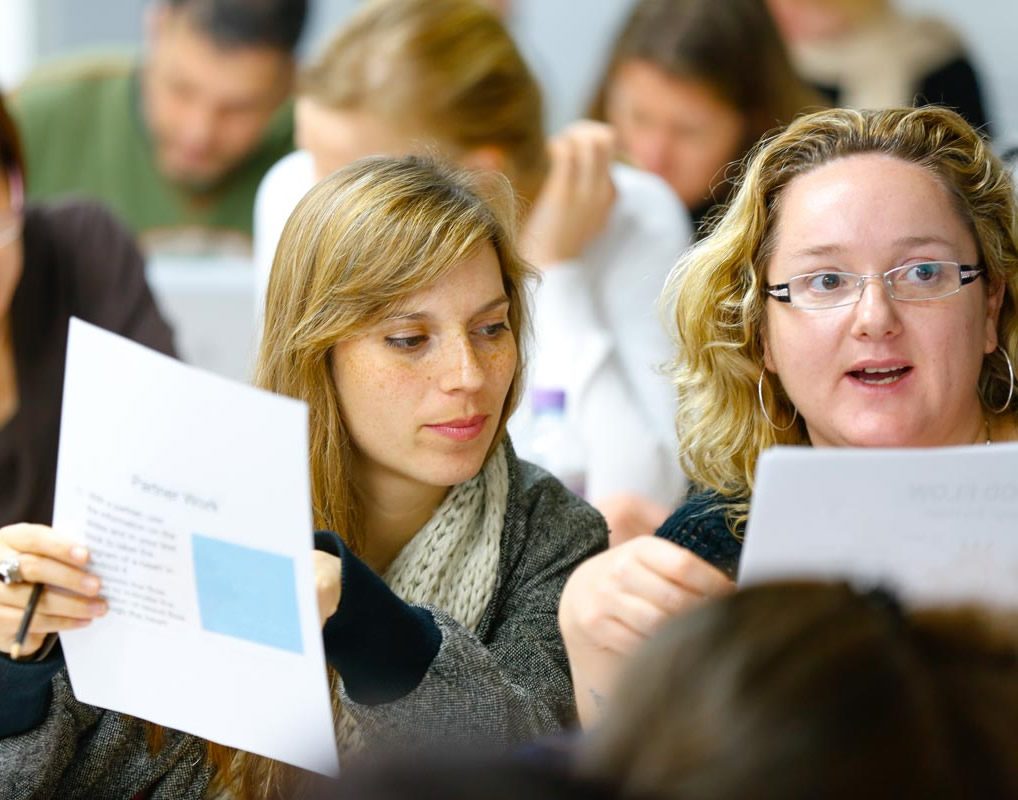
Why study Acupuncture with CNM
- In-depth, practice-orientated study leading to successful practitioners
- Excellent up-to-date educational material including filmed lectures
- 400 hours of clinical practice to become confident in dealing with clients
- Learn all you need to set up and build a successful, satisfying business
- Experienced and supportive lecturers who are practitioners themselves
- Well established college which is widely acknowledged in the world
- Option to expand your knowledge and take your studies further
Change career, learn how to help others, improve your health, and establish a rewarding business – contact one of our course consultants.
Acupuncture Course - Syllabus
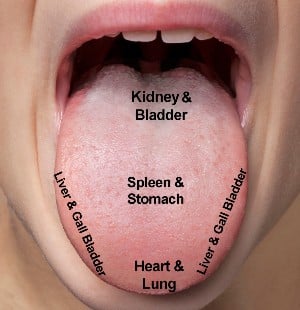
Part 1: Biomedicine, Naturopathy Study & Acupuncture I (1 – 3 years)
Biomedicine
- Biomedical Anatomy, Physiology & Pathology Medical Terminology & Research Methods
- Medical & Naturopathic Pharmacology
- Medical & Naturopathic Clinical Diagnostics incl. Examination Methods & Laboratory Testing Techniques
Naturopathy Study
- Naturopathy
- Nutrition
- First-aid Homeopathy
- TCM (Theory)
- Iridology
Acupuncture I
- History and philosophy of Acupuncture
- TCM I (Traditional Chinese Medicine)
- Point Location I
- Causes of illnesses (emotions, environment, toxins, diet)
- TCM diagnosis
- Working with “qi”
- Chinese medical theory
- Practitioner development & ethics I
- Research I
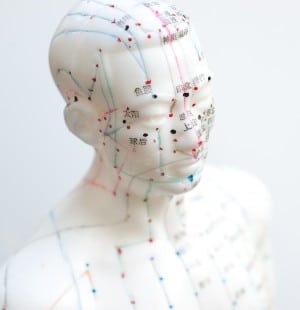
Naturopathic Principles, Acupuncture II (1 year)
Naturopathic Principles
- Naturopathy & Detoxification
- Bach Flower Therapy
- Tissue Salts
Acupuncture II
- Practical techniques
- TCM II (Pathology)
- Chinese pathology
- Point location II
- Clinical observation
- Practical development & ethics II
- Research II
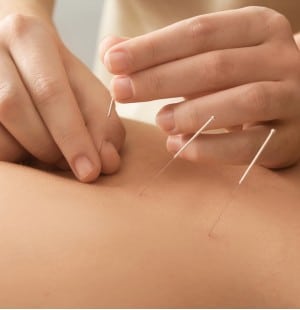
Part 3 Acupuncture III (1 Year)
Acupuncture III
- Clinic management
- Clinical practice + PR / marketing
- Business development
- Research III literature review
- TCM complex diagnosis and assessment
The main focus of this level is practical application. Students learn how to take cases in clinic and how to see clients under supervision. Part of the course is also clinic management and practitioner development. CNM Students are given all the skills necessary to become successful therapists and to fulfil their goal of helping others.
Why study with the CNM?
Acupuncture Course: An introduction


I’ve ever been."


nutrition and lifestyle changes. I started to
feel so much better."
Prerequisites for CNM’s Acupuncture Course
Junior or Leaving Certificate, or equivalent academic and/or work experience. If you are able to demonstrate previous study or work experience you may apply to gain exemptions from some units. Please contact us for more information and to see if you qualify for direct enrolment.
Acupuncture Course Accreditation
Acupuncture Training

CNM Students are eligible to join the ANP (Association of Naturopathic Practitioners) and receive the following benefits:
- Access to various databases for further research
- Discounted indemnity insurance for clinical practice
- Discounts from various companies
- Reduced fees for special seminars, lectures, master classes, workshops
- Free training to set up your business
- Free mentoring for new graduates
ACI (The Acupuncture Council of Ireland) and the AFPA (Acupuncture Foundation Professional Association).
Naturopathy Training
Nutrition students who complete the optional Naturopathy Study and Naturopathic Principles courses will receive an additional CNM Diploma in Naturopathy which is accredited by the following Naturopathic Associations:

ANP (Association of Naturopathic Practitioners) The ANP is the largest Association for Naturopathic Nutrition and Naturopathy in the UK and Ireland. ANP members are widely respected in the industry in Europe and Internationally.
Career Options in Acupuncture
CNM graduates are fully equipped to become successful therapists. Statistics have shown that more than 80% of CNM graduates are practising. To advance therapeutic skills, CNM offers post-graduate courses and additional training.
Further Study
Students who have completed the Biomedicine, Naturopathy Study, and Naturopathic Practical study units may opt to study the other specialist diploma courses, Homeopathy, Herbal Medicine, and Naturopathic Nutrition.
What is Acupuncture?
Acupuncture is a core element of Chinese Medicine. It is based on the understanding that there is an energy flow in living organisms, which, if blocked, results in diseases. An Acupuncturist resolves this energy flow by placing needles in appropriate Acupuncture points
The power of acupuncture to restore the health of body and mind is increasingly recognised throughout the western world. Acupuncture has an extraordinary ability to change people’s lives.
Acupuncture works on a deep level to help patients recover their physical and mental harmony. Acupuncture is becoming ever more popular in the UK, and opportunities for both independent practice and within the NHS are growing all the time. Acupuncture is viewed very positively by the House of Lords Committee, the British Medical Association, and the World Health Organisation.
What is Naturopathic Acupuncture?
by Henry McGrath (MA, MBAcC, MRCHM)
Rather than teaching acupuncture as a stand-alone technique, CNM has blended it with naturopathy. Henry McGrath explains…
Acupuncture is part of a holistic approach
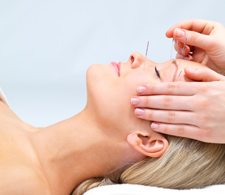 Right from the very time of its origins, around 2500 years ago in China, acupuncture has always been part of a whole package of healthy living. Rather than just focusing on the symptoms of disease, the acupuncturist would always try to find out the cause. In the famous book “The Yellow Emperor’s Classic”, the Emperor asks his Minister why people are not as healthy as they used to be, and why life expectancy is falling. The Minister explains that people’s lifestyles are less healthy than they used to be: in the past people ate properly, and tried to live a natural lifestyle, in harmony with the natural environment. Nowadays, however, people eat too much rich food, and don’t rest properly. One wonders what the Minister would make of our modern lifestyle, with its hectic pace, fast food and environmental pollution.
Right from the very time of its origins, around 2500 years ago in China, acupuncture has always been part of a whole package of healthy living. Rather than just focusing on the symptoms of disease, the acupuncturist would always try to find out the cause. In the famous book “The Yellow Emperor’s Classic”, the Emperor asks his Minister why people are not as healthy as they used to be, and why life expectancy is falling. The Minister explains that people’s lifestyles are less healthy than they used to be: in the past people ate properly, and tried to live a natural lifestyle, in harmony with the natural environment. Nowadays, however, people eat too much rich food, and don’t rest properly. One wonders what the Minister would make of our modern lifestyle, with its hectic pace, fast food and environmental pollution.
The Minister was clear that acupuncture must be supported by changes in lifestyle, or it would only be limited in its effectiveness. However, in the West, acupuncture is all too often practiced outside this context, as a stand–alone technique, performed without any supporting advice on lifestyle and other supporting therapies.
This is why CNM has developed “Naturopathic Acupuncture”. Our students are taught from the very start to consider the causes of disease, and to educate patients in developing healthy, more sustainable lifestyles.
Traditional acupuncturists placed great emphasis on the body’s own healing power. Rather than forcing out illness using strong drugs, Chinese doctors tried to stimulate the body’s own innate healing power. This approach is always followed by naturopaths too.
All CNM acupuncture students are educated about the importance of nutrition. Acupuncture works by treating the “qi”, or “vital force”. However, as the Yellow Emperor explains, qi is produced by the food one eats. If the diet is poor, the acupuncturist has much less qi to work with. We find in the CNM acupuncture student clinic that patients who follow our dietary advice tend to get well really quickly, whereas those who ignore it get better more slowly. In fact, those who do not change their diets often hit a kind of ceiling on their wellness: they cannot get beyond a certain point without dietary changes. A good diet is one of the fundamental aspects of the Naturopathic approach.
Illness and wellness
Another key aspect of Naturopathic Acupuncture is the promotion of wellness, not just the elimination of symptoms. All too often health is defined merely as an absence of disease. One feels unwell, goes to the doctor, and has a variety of blood tests and scans. The results come back showing no abnormalities: the patient is told they have nothing wrong with them. If the patient still complains of feeling unwell they are dismissed as a hypochondriac or a neurotic: perhaps the doctor will refer them for therapy or counselling.
On the other hand, according to the Naturopathic understanding, if a person does not feel well, then indeed they are not fully healthy. Illness is not something to be suppressed, it is the body giving a signal that something needs to change. This is why we focus on promoting maximum health, rather than just on preventing symptoms. Naturopathic Acupuncture promotes wellness, rather than just on removing illness. Health is a journey and with the Naturopathic approach we are always growing in wellness.
Naturopathic Acupuncture and the Environment
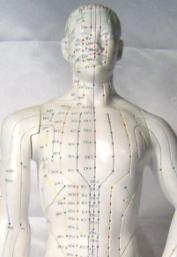 The Yellow Emperor talks of living in harmony with our environment, a message our modern world needs to hear. Our lives are intimately bound up with the ecosystem which supports us. If we do not look after our planet, we will eventually become sick ourselves. By eating organic, naturally produced food, we are minimising our impact on the environment, and at the same time making ourselves healthier. By cultivating a more balanced approach to life we heal ourselves and the planet together. For example, by walking or cycling instead of driving, we become fitter and reduce pollution. By choosing recreations such as walking, instead of just watching television all the time, we do the same. It is a sad reflection on the modern approach to health that there is an epidemic of obesity among our children: this is no surprise given the amount of time many of them spend sitting in front of the television eating junk food. How can children expect to be healthy if they do not exercise and eat well? And yet the modern way is to give them harmful drugs to calm down their hyperactivity, when often all they need is proper food and exercise.
The Yellow Emperor talks of living in harmony with our environment, a message our modern world needs to hear. Our lives are intimately bound up with the ecosystem which supports us. If we do not look after our planet, we will eventually become sick ourselves. By eating organic, naturally produced food, we are minimising our impact on the environment, and at the same time making ourselves healthier. By cultivating a more balanced approach to life we heal ourselves and the planet together. For example, by walking or cycling instead of driving, we become fitter and reduce pollution. By choosing recreations such as walking, instead of just watching television all the time, we do the same. It is a sad reflection on the modern approach to health that there is an epidemic of obesity among our children: this is no surprise given the amount of time many of them spend sitting in front of the television eating junk food. How can children expect to be healthy if they do not exercise and eat well? And yet the modern way is to give them harmful drugs to calm down their hyperactivity, when often all they need is proper food and exercise.
As we increase our wellness, we are less attracted to junk food, excessive alcohol and drugs. Our culture of bingeing is another sad reflection of our sickness as a society. When people are unhappy, unwell, frustrated, they want to block it all out with bingeing.
Naturopathic Acupuncture and the modern world
Acupuncture was developed in a very different world to ours. Our pattern of disease is, therefore, often quite different to that seen in ancient China. At the time acupuncture was developed, much disease was often caused by a simple lack of basic food, and by chronic overwork. In our society, by contrast, disease is often caused by an excess of toxicity. This is one reason why CNM has developed Naturopathic Acupuncture, in order to focus on reducing the level of toxins as part of the return to full health. In our experience, modern diseases benefit hugely from an approach which includes a method of detoxification.
So what are these toxins? They can include internally generated toxins, such as urea, or waste products of bacteria or yeasts. They can also include external toxins, such as drugs (illegal or prescription), alcohol, caffeine, food preservatives, pesticides, cosmetics, environmental pollutants and heavy metals.
The Naturopathic approach focuses on clearing toxins from the body, using the body’s own organs of detoxification. These organs include the lymphatic system, the skin, the kidneys, the lungs, the colon and the liver. By getting these organs to work more effectively, the body will release toxins and return to health.
Naturopathic Methods of Detoxification
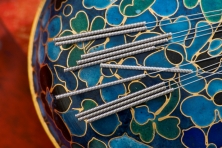 According to the ancient Chinese, detoxification is best carried out in the spring. This is the time for rejuvenation and renewal of life. Naturopaths also follow this guidance, which is working with the laws of nature. Winter, on the other hand, is a time of building up reserves and resting.
According to the ancient Chinese, detoxification is best carried out in the spring. This is the time for rejuvenation and renewal of life. Naturopaths also follow this guidance, which is working with the laws of nature. Winter, on the other hand, is a time of building up reserves and resting.
In such a short article it is difficult to describe all the methods of detoxification which we teach at CNM in great detail. Here we will just give a brief summary of some of the main methods taught at CNM.
Fasting is an important method of detoxification. This does not mean a total absence of nourishment, it means using juices and supplements which are easy to absorb and do not require much of the body’s energy to break down. Such fasts usually last only one to three days: longer fasts must be done with great caution under experienced guidance. Those who have done such fasts report a feeling of “lightness” and increased energy. In the short term, as toxins are released into the bloodstream, people may experience headaches, nausea, skin rashes, body aches, or other symptoms. These will pass as the toxins leave the body. Fasting can be supported by various herbs and supplements.
Coffee enemas are used to flush toxins out of the body. Chemicals in the coffee pass into the haemorrhoidal veins and then into the portal vein. Other compounds in the coffee stimulate the production of enzymes which break down toxins such as free radicals in the bloodstream. Colonic therapy can also be used, which passes filtered water into the whole colon.
Other detoxification therapies include saunas and steam baths; skin brushing; lymphatic drainage massage and exercise.
The exact types of Naturopathic methods used will depend on the type of diseases being treated, which is why it is important to have a good quality training programme such as that offered by CNM.
Conclusion
The ancient Chinese who developed acupuncture believed that disease should be treated by a wide range of interventions, designed to stimulate the body’s own capacity to heal itself. In the modern world, we need to pay particular attention to the need for body detocification. CNM’s approach to Naturopathic Acupuncture is specifically designed to combine ancient Chinese principles with the needs of today’s society, to produce maximum health benefits for all. We do not settle for getting rid of symptoms, we aim to promote a feeling of true wellness and vitality.
This article was featured in CAM Magazine – February 2011 Issue
What else is in the CNM acupuncture curriculum?
Some of the key subjects you will learn when completing CNM’s naturopathic acupuncture diploma include:
- Yin Yang theory
- Causes of diseases
- Five Elements
- Eight Principles
- Meridians
- Pathology Diagnostic
- Differential Diagnostic
- Pulse Diagnostic
- Tongue Diagnostic
- Case taking and follow up
- Point location
- Needle techniques
- Cupping
- Moxibustion
- Bodywork techniques
- Qi Kung
- Respiratory System
- Urogenital System
- Digestive System
- Cardiovascular System
- Pain, Headaches
- Skin problems
- Practice management


